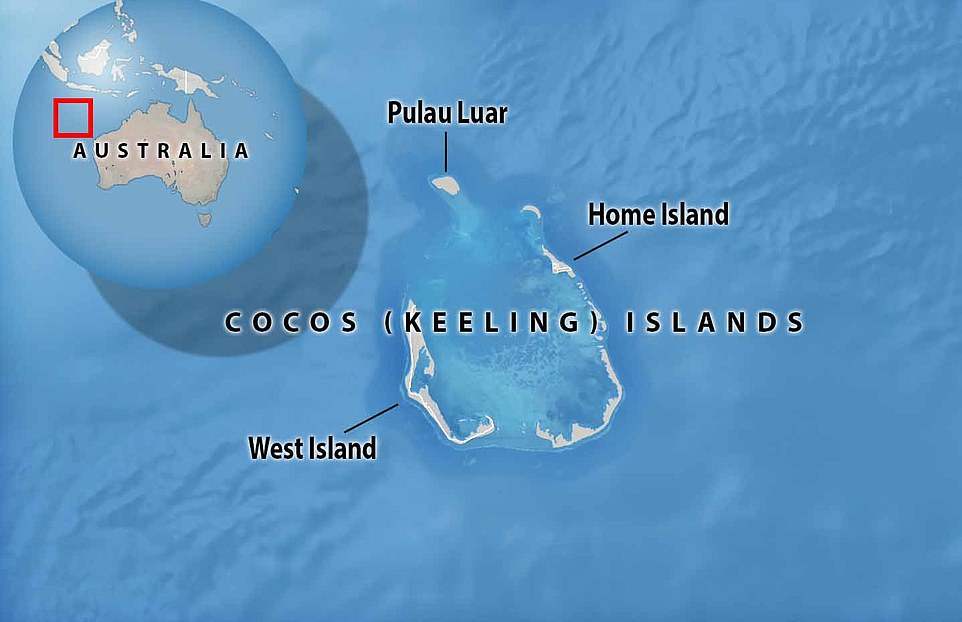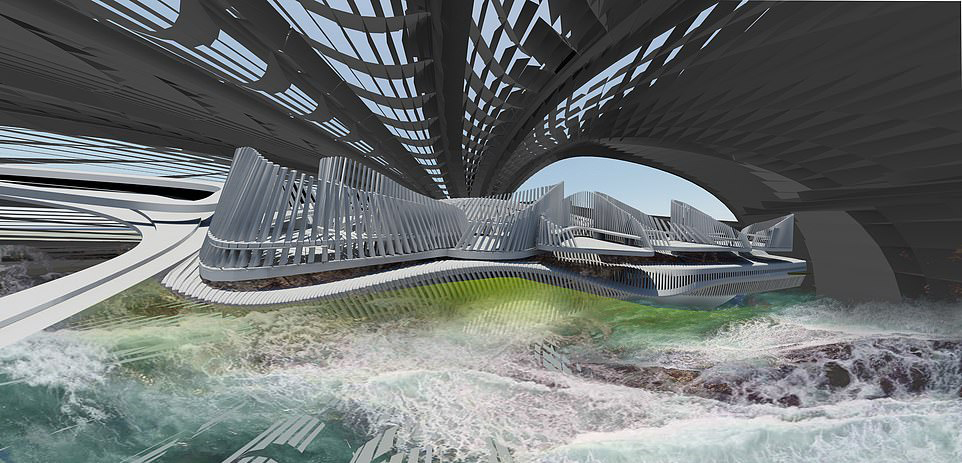Great news! Australia’s Cocos Islands will soon have a gigantic floating island resort made almost exclusively from garbage, including all that nasty plastic drifting in the ocean.
The Recycled Ocean Plastic Resort is scheduled to welcome its first guests in 2025. It will be located on an artificial island in a remote Australian territory known as Cocos Islands, or Keeling, which is a coral archipelago with the most fantastic underwater landscape and colorful inhabitants.

The main material for the island’s construction will be garbage collected in bags covered with silt and sand. The head architect of the innovative project, Margot Krasojevic, has always dreamed of an ingenious way that would help reduce the amount of trash polluting the Indian Ocean. So, she got the idea to create a resort on an island made from ocean debris.

According to her concept, the idea is to build a bed made of garbage, tether it to the ocean floor, create tree walkways, and start the construction. The construction will look a lot like an oil rig, so it should be safe. This tech will allow the island to expand in the future if needed.

Naturally, it’s not just going to be all ocean trash. Steel beams, concrete blocks, tools, and everything else will be delivered by boats. It would be funny to see a fully-trashed dumpster island charge people 5-star prices. But no, the additional materials will be brought in, of course.
Do you see those tentacle-like protrusions? I don’t either, but the architect keeps talking about them, so they have to be there. These “tentacles” can inflate or absorb water, regulating the island’s buoyancy.

But probably the best feature of this hotel will be the side nets that will scoop up any and all debris floating by, like plastic bottles, face masks, tires, and other junk will be segregated and recycled for further development and expansion of the island. After the island’s construction is fully completed, they will start building the hotel and everything from shopping malls and pools to toilets and beaches.
The idea behind this project is quite compelling since it should help clean up the world, but will it really work? We’ll see in about three years.

